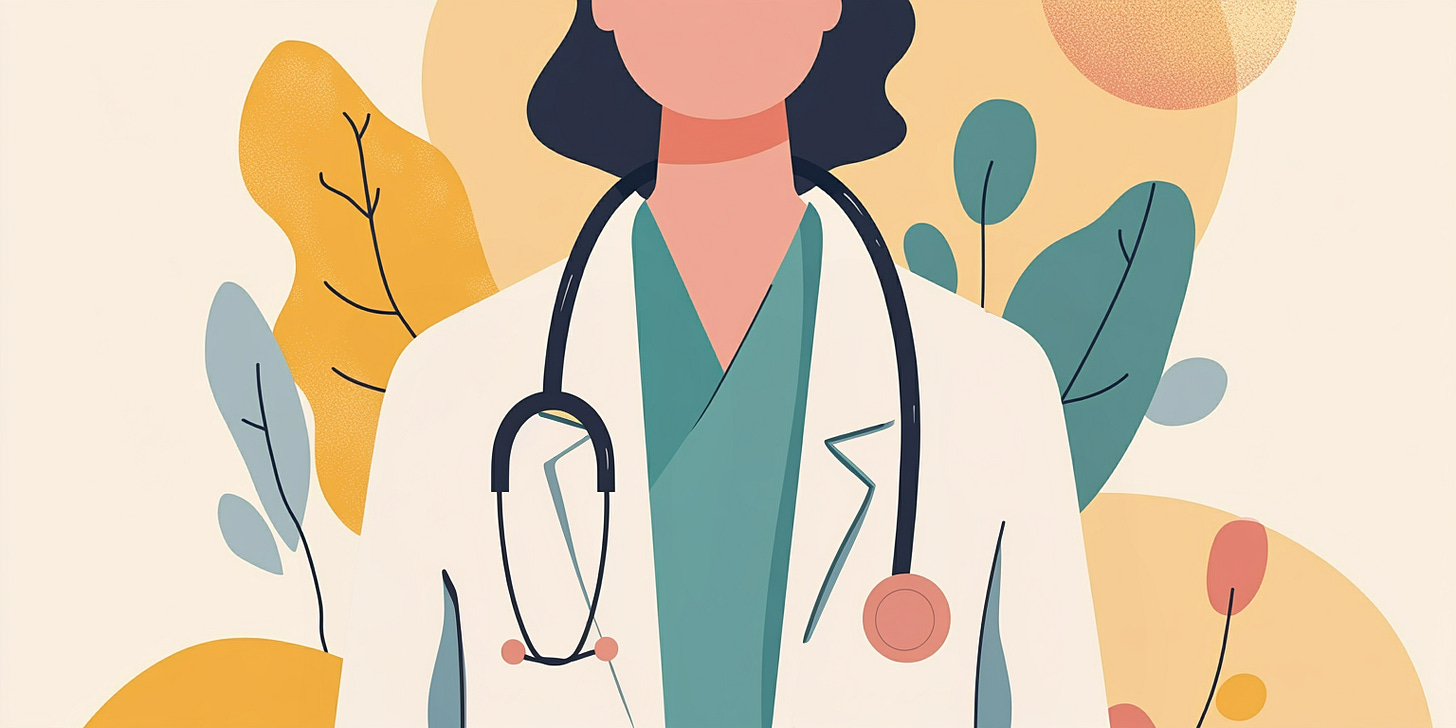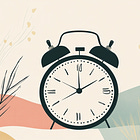5 Health Truths You’ll Never Hear In A Clinic
The real conversations doctors don’t have time for—but you deserve to hear.
As a physician, I’ve had thousands of conversations with patients. But there is a list of things I wish I could take the time to sit down and go over with every single person who walks into my office.
The modern medical system was designed for acute problems and quick fixes. It is incredibly effective for fixing a broken leg or treating a serious infection. Yet, there is little room for the real, underlying pillars of health that keep problems from even starting.
So today, I am sharing that private list with you. Understanding these truths is the key that shifts you from the passenger seat of your own health to the driver’s seat.
Here are the 5 things I wish every doctor had the time to discuss with you.
1. You are naturally either a “sunflower” or a “moonflower”
Some people are primarily sunflowers, waking up early each day and having their greatest attention and energy in the light of day. Others are like moonflowers, waking up much later in the day and finding their creativity long after the sun went down.
This is your chronotype, the biological clock you are born with.
There is not one that is “better” than the other, but the world we live in, which caters to a “9-to-5” schedule, is designed for sunflowers. Asking a moonflower to do their most important work at 7:00 am is like putting a moonflower in a dark room overnight—it will never really thrive.
If you align yourself with your natural rhythm, it allows your biology to continue using light to grow.
Find your chronotype meal plan for easier weight loss here:
2. Drinking any kind or amount of alcohol (even wine) raises your risk of cancer
The conversation around alcohol is confusing, but the biological reality is simple.
You can think of a perfect, complex document that contains the instructions of your body as being your DNA. When you drink alcohol, your body turns it into a cytotoxic molecule called acetaldehyde. Acetaldehyde represents tiny drop of corrosive ink.
One drop of ink won’t ruin the document. In fact, it goes unnoticed to an untrained eye.
However, after days, months, and years of dripping the ink drops accumulate and ruin it smearing the instructions and causing lasting injury (mutations). It is the cumulative injury that alcohol directly increases the risk of cancer.
There is not a specific magically safe amount of ink drops.
In the Mediterranean diet, which is one of the more effective dietary patterns for preventing chronic disease, promoting healthy aging, and increasing quality of life, there is a controversial element, which is the moderate consumption of red wine.
Even though red wine, in fact has bioactive phytonutrients, you can get all the bioactive benefits from in other foods without the need to consume alcohol.
An occasional one glass of red wine once a month will likely not be a problem, but it’s important to be clear: you don’t drink it for your health.
I discuss this and a number of other topics popular today in my upcoming book, “Delicious Longevity: Practical, Science Based Guide to Holistic Wellness and Lasting Health through Nutrition.”
It is about to be published, if you want to get a FREE COPY leave a comment on why you want to read it and some members will be selected. Sharing the post will give extra points!
Discover 17 other cancer myths debunked with evidence here (it may benefit your wallet too):
3. Your gut is a garden influencing your mood, your immunity and your age
Your gut, also called your “second brain,” is not a sterile pipe; it is a busy, colorful garden inside your gracious with trillions of microorganisms.
Think of the “good” bacteria as the fruits, vegetables, and flowers. They help digest food, synthesize vitamins, and fine-tune your stress response. The “bad” bacteria are the weeds, and they also release irritants and noise.
Food is either fertilizer for flowers (high-fiber plants, fermented foods) or fuel for weeds (ultra-processed foods, excess sugar).
An overgrown, weedy garden also keeps your immune system (70% of which exists in the garden’s “soil”) too busy, occupied, and distracted by the weeds to fend off real invaders.
Your gut microbiota plays a direct role in the development of some very common mental health disorders, such as insomnia, anxiety, and depression, including postpartum depression.
Individuals with anxiety or depression have a different composition of gut flora, with a higher presence of pro-inflammatory species and lower abundance of short-chain fatty acid-producing species with anti-inflammatory properties.
This imbalance, known as dysbiosis, appears to lead to chronic, low-grade systemic inflammation that drives complications for these disorders, creating a vicious cycle, and contributes to your process of aging.
In short, changes in your microbiota affect not just your mental well-being; it also seems to affect the rate at which your body ages.
Turn your gut into a mood booster—see how here:
4. Sleep deprivation increases insulin resistance even after just one night
Think of your cells like tiny houses, with locked doors. All the energy you receive from food (glucose) has to get in to power the house. Insulin is the key that opens the door.
When you have an intact and good night sleep, those locks are oiled up, and the key turns easily.
After just one bad night, it’s like all the locks become rusty. The key gets in the door, but you have to jiggle it and push much harder to get it open. Your body’s response is to send the locksmith (more and more insulin) in to force the door open.
When this happens night after night, your body is continually fighting to get in a the house. This is called insulin resistance.
And the more that this happens, the more likely you will be dealing with metabolic dysfunction down the road including excessive weight gain, cravings, and a host of other signals leading to Type 2-related chronic disease.
Get a simple, doctor-designed “Sleep Reset” and “Nutrition & Supplement Hacks” for sleep here:
5. Your brain’s “thirst” and “hunger” signals are next-door offices
Think of the control center in your brain (the hypothalamus) as an office building.
The “I’m Hungry” office and the “I’m Thirsty” office are side by side, and their alarm can sound almost the same.
When your body needs water (even slightly), the “thirsty” alert goes off. But because you are busy or sidetracked by work or other signals, you could very well mishear that alert as “hungry”.
This is often when we get the sudden urge to look for a snack.
Before you go hunting through the pantry, do your brain a favor: deliver a glass of cold water to the “thirsty” officer first and then wait no less than 15 minutes to see what happens.
You’d be surprised how often the other signal just fades away.
Cut premature aging risk with The Hydration Plan here:
I truly hope you found this post helpful.
To your zenith within,
Sara Redondo, MD
P.S. Remember you can share in the comments why you’d like to receive the FREE COPY of my upcoming book “Delicious Longevity: Practical, Science Based Guide to Holistic Wellness and Lasting Health through Nutrition.” Sharing the post will give extra points!








I have been reading your posts now and then and they are a refreshing change from the same old, same old “treat the symptoms” medical establishment. We need more Doctors like you to think outside the box to help folks like me get the best out of life. I wish you and your cause continued success 🚀👍🙏
As a former oncology and hospice nurse, and a woman who has abused her body from time to time. I care and I want to learn more. I just finished in Anatomy Trains human dissection, and I don’t wanna end up like anybody that was on my table.